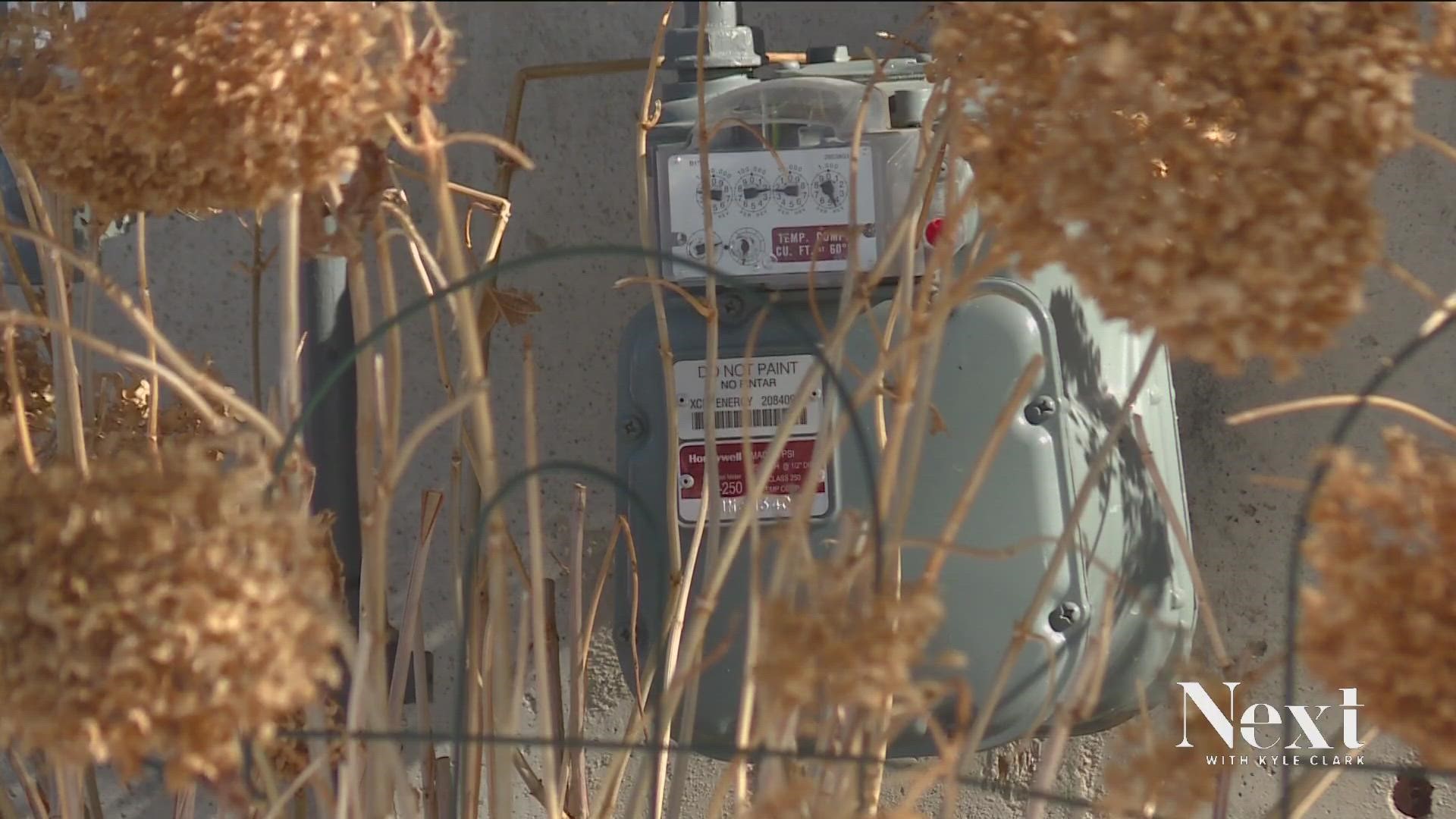DENVER — Xcel Energy's plan to buy gas for next winter got approved by the Public Utilities Commission (PUC) on Wednesday.
The plan calls for Xcel to hedge -- or get insurance -- against gas going up unexpectedly.
The plan only works if the price of gas goes up and not down.
“We are working to find the least cost at all times,” Xcel Colorado President Robert Kenney said on Monday. “We have a gas purchasing plan that we submit and gets approved by the commission. We hedge about 50% of our gas needs, so that we can limit the amount that we have purchase in the spot market.”
Hedging is a risk-reward calculation. One that Xcel provides the PUC, but not the public.
“I think what’s really interesting about the publicly available PUC filings, is that the majority of the actual content and substance that you need to make an informed decision about the performance of their current and previous hedging proposals is redacted,” said Bresee Carlson, an oil and gas attorney and partner with Kuiper Law Firm.
Carlson reviewed the gas purchase plan and saw one glaring issue -- all the redactions.
“In a regulated utilities market, there is no reason to have secrecy from the consumer,” Carlson said. “For an average ratepayer to be able to determine whether or not they have faith in the program that’s being implemented or being requested, it’s very, very difficult to do without being able to see any of the actual data.”
“Every gas utility in the state would tell you it’s a reliability resource first and an economic resource second,” said PUC Chief Economist Erin O’Neill.
O’Neill described the gas purchase plan to the PUC commissioners ahead of their approval vote on Wednesday.
“Really appreciate the additional explanation, especially I think, for the listening public with a very keen interest right now in gas prices and what’s being done,” said Commissioner Megan Gilman.
The explanation described how the insurance works.
If Xcel buys gas at $3 and it ends up being $6 in the moment, everyone wins, the difference in price is not owed by ratepayers. If Xcel buys gas at $3 and it ends up being $1 in the moment, ratepayers overpaid.
O’Neill explained why utilities are not buying gas today to store for next year.
“If prices are low today, sitting here in February, they might go out to the market and purchase, especially if their storage volumes are low, but they’re also getting to the lower end of the winter heating season and they do need to physically draw down all of the gas in storage at the end of the heating season,” O’Neill said. “It looks like an opportunity in the market when prices are low today to try to take advantage of that, but the physical system can only store so much, for so long and it needs to be cycled.”
SUGGESTED VIDEOS: Full Episodes of Next with Kyle Clark

